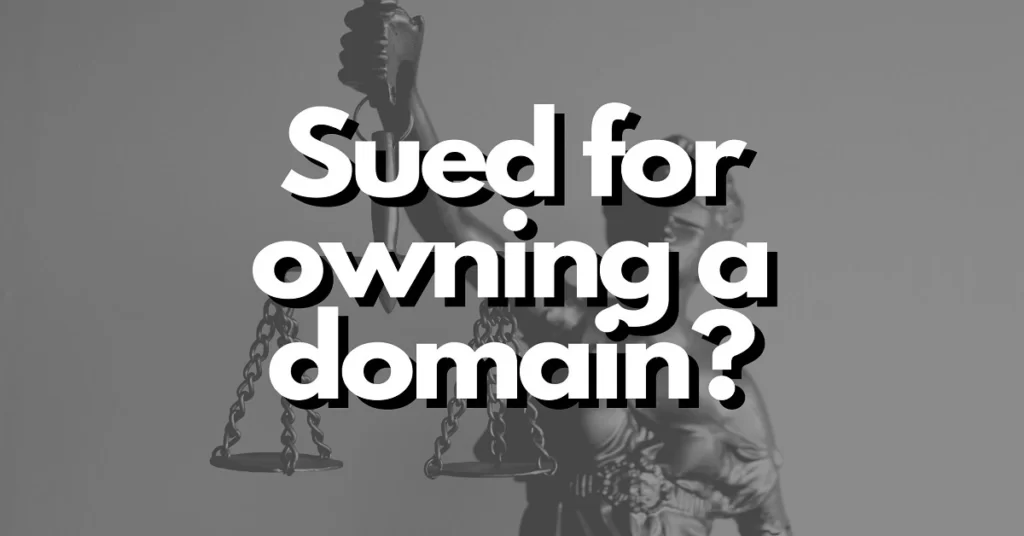There are several reasons why you may be sued based on ownership of a domain name:
- Trademark infringement: If you own a domain name that is similar to a trademark owned by another party, you may be sued for trademark infringement if you are using the domain name in a way that is likely to cause confusion or dilute the value of the trademark.
- Domain name squatting: If you own a domain name that is similar to a trademark or a well-known brand name and you are not using the domain name for any legitimate purpose, you may be sued for domain name squatting. This is a type of cybersquatting in which you register a domain name with the intent of selling it to the trademark owner or to a third party for a profit.
- False advertising: If you own a domain name that is being used to promote false or misleading information, you may be sued for false advertising.
- Defamation: If you own a domain name that is being used to publish defamatory content about another person or entity, you may be sued for defamation.
- Privacy violations: If you own a domain name that is being used to collect or publish personal information about another person without their consent, you may be sued for violating their privacy.
Overall, the specific reasons for being sued based on ownership of a domain name will depend on the circumstances of the case and the laws of the jurisdiction in which the lawsuit is filed. It is important to carefully consider the potential risks and liabilities associated with owning a domain name and to seek legal advice if you have any concerns.
